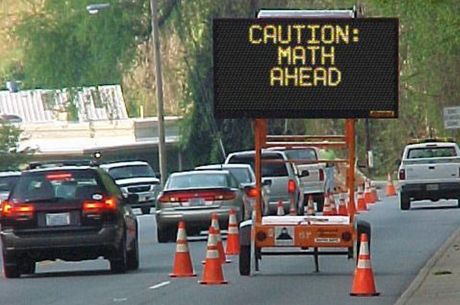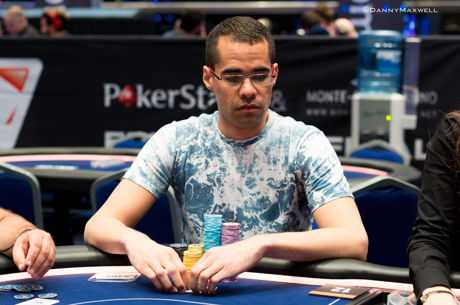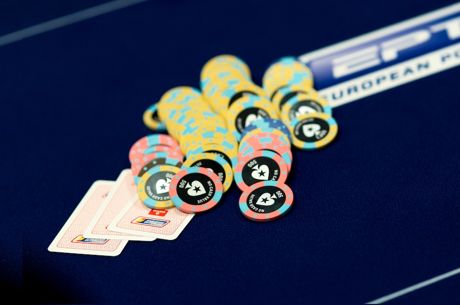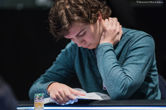How to Do Poker Math with a Different Kind of Online Tool
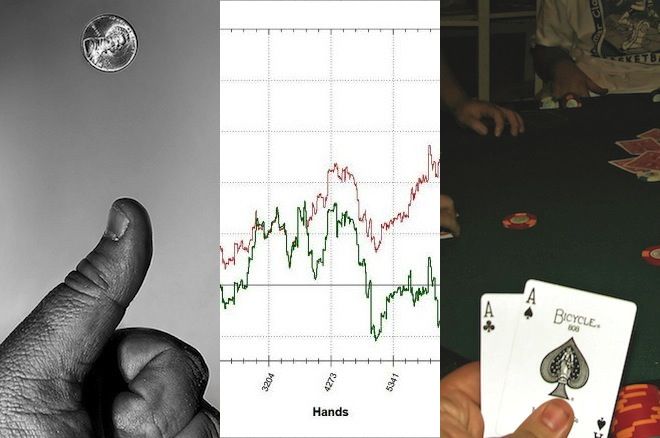
I want to introduce you to a tool that will let you answer some poker probability questions that can be done in no other way.
Let me confess this in advance: Today's subject is not fun or sexy. But if you work through the examples with me, and try some of your own, I think you'll find it useful.
The tool is the binomial calculator. It is used to determine the probability of a given number of outcomes of some type, from a larger number of trials.
Coin flips
For example, say you flip a coin 100 times, and you're surprised to find that you got 60 heads and 40 tails, quite far from the expected 50-50 distribution. You want to know exactly how unlikely this outcome was.
Go to an online binomial calculator (here's one). You have to give it three parameters:
- The probability that a coin toss results in heads, which is 50% or 0.5.
- The number of trials you conducted, which here is 100.
- The number of those trials that resulted in the outcome you're interested in, which is 60 heads. (Play around with it, and you'll discover that the results for 40 tails are the same, as they must be.)
The calculator then tells you that the probability of getting exactly 60 heads in 100 coin tosses is 0.0108, or a hair over 1%.
A separate line in the results also answers a related question: What is the probability of getting at least this skewed an outcome, that is, 60 or more heads in 100 trials? It's 0.028, or 2.8%. In other words, if you add up the probability of getting 60 heads, 61 heads, 62 heads, and so on, the answer is that out of all the times you do a set of 100 coin flips, you'll get 60 or more heads in close to 3% of them.
NOW LET'S TURN TO POKER APPLICATIONS.
ACES
Yesterday I played poker for about four hours, and was dealt pocket aces three times, which struck me as pretty unusual �� in fact, that's what prompted me to write about this subject today. Let's assume I saw 30 hands per hour, so a total of about 120 hands. How improbable is it to get pocket aces three times out of 120 hands?
First we have to determine the probability of getting AxAx in any one hand. You might know off the top of your head that it's 1/221 �� but if you don't, it's easy to calculate. The probability of the first card being an ace is 4/52, or 1/13. After that happens, there are 51 cards left in the deck, of which three are aces, so the probability of the second card being an ace is 3/51, or 1/17. The combined probability, then, is 1/13 x 1/17, or 1/221. We need to express that as a decimal to enter it into the binomial calculator �� it's 0.0045.
Our number of trials is 120, and our number of successes is 3. Put in all three of those variables, and the calculator tells us that the probability of getting exactly three pairs of aces in 120 hands is 0.015, or about 1.5%. The probability of being at least that lucky, i.e., being dealt three or more pairs of aces in 120 hands, is only slightly higher �� 1.7% �� because the probabilities of getting four, five, and more are each so tiny.
So my gut feeling was right. Yesterday's cornucopia of aces really was unusual. I can expect that kind of luck less than 2% of the time.
Suppose, instead, that I had had a dry spell of aces �� none at all. How unlucky would I have to be for that to have happened? We enter the same probability for each deal and the same number of hands (trials), but 0 for the number of successes. The calculator spits out a probability of 0.58, or 58%.
In other words, a little over half the time that I play a session of 120 hands, I'll see no pocket aces. That's not especially unlucky, but just par for the course.
BIG PAIRS
Let's expand this further. Yesterday I was also dealt pocket kings once and pocket queens twice. We'll lump these together with the aces under "big pairs," meaning I had a total of six such pairs in my 120 hands.
On any one deal, the probability of getting kings is the same as that of getting aces �� 1/221. The same is true for queens, or any other pair. So the combined probability of getting aces, kings, or queens on any hand is 3/221. In decimal form, that's 0.0136.
We put that into the calculator along with 6 as my number of successes, keeping the number of trials at 120. We find that the probability of getting exactly six big pairs in 120 hands is just 0.0013, or about 0.1%. But what we're really interested in is the probability of being at least that lucky with the big pairs. For that, we look to the answer box about the probability of "X �� 6," which is 0.006, or 0.6%.
Conclusion: Only about six times in every thousand sessions of 120 hands of hold'em poker can I expect to get six or more big pocket pairs as starting hands. My game yesterday was a genuine statistical outlier.
Losing streaks
Let's turn to a completely different kind of poker application.
Suppose you've been in what seems like a bad slump of cash-game sessions. You play every day, but in September had just 10 winning sessions out of 30. You'd like to know how likely this is to happen.
First, we need to know the probability of winning or losing in any given session. For that, you need to have a reliable, long-term record. (You do have that, right? If not, it's a problem you desperately need to fix.) Let's suppose over several years you have won 65% of the time and lost 35%. The task for the binomial calculator, then, is to determine the probability of having only 10 winning sessions in 30 trials, when the probability of a win is 0.65.
The answer is a lot lower than you probably think �� it's 0.0001, or 0.01%. If you've played a lot of poker on a regular basis, you might think it's not too surprising to have a slump like 20 losses in 30 sessions, even when one is usually a consistent winner. And you're right �� it's not unusual in real life, certainly not anything like the 1-in-10,000 rarity that the math says. So what's going on?
Unlike the previous problems we calculated about coin tosses and what cards you're dealt, whether you win or lose in any given session is not a purely random event. It depends on how well you're playing, how well the other people are playing, how long you play, and other variables. But the calculator assumes that randomness is the only thing determining the results.
Going back to the coin-flip outcomes, at some point the probability is so low that the safest conclusion is not that you've just witnessed an immensely unlikely event, but that the coin is not, in fact, as fair as you had previously assumed. Similarly, given the very low probability of the observed losing streak for September, the logical conclusion is that your slump is not due to chance alone.
By this means, the binomial calculator tells you that something hugely non-random has been tanking your win rate, and you need to set about figuring out what it is, so that you can fix it. (Hint: The first place to look for a culprit is in the mirror.)
Tournaments
One more example: You've been playing the same online poker tournament every day for a year �� 365 entries. It always pays 10% of the players. You've cashed 40 times, which is clearly better than the 36.5 that would be expected if all of the players were equally skilled, so that only luck determined the winners. But is it enough greater that you can conclude that you're better than your average opponent, or have you just been a little luckier than they are?
Once more to the binomial calculator! We have 365 trials, 40 successes, and a probability of success of 10% or 0.1.
The calculator spits out about 24% as the likelihood that you'd have exactly 40 cashes. More important is the "X �� 40" probability, which is about 29%. That is, if all of the entrants in these tournaments had exactly the same skill, 29% of them would have a frequency of cashing that is as good or better than yours. Sorry, but when nearly one-third of your competitors would match your success by luck alone, your results are not proving that you're meaningfully better than they are.
But what if you have 45 cashes instead of 40? It seems like not much of a difference, but the math says otherwise. Now the calculator shows that just 8% of entrants of average skill would get results as good or better than yours. That's getting into a low enough probability that it's reasonably safe to assume that you have a genuine skill edge on the field.
Conclusion
"Binomial calculator" is kind of a strange, intimidating name, but it's really not hard to use, and it allows you to answer some kinds of poker math problems that would be impossible without it.
Robert Woolley lives in Asheville, NC. He spent several years in Las Vegas and chronicled his life in poker on the "Poker Grump" blog.
Photos: "Honest Abe," jeff_golden CC BY-SA 2.0; "Pocket Aces," Eliya CC BY 2.0.

